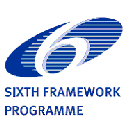The OSIRIS Project (1 Apr 2007 – 30 Sep 2011)
The new regulation concerning the registration, evaluation, authorisation and restriction of chemicals (REACH) requires demonstration of the safe manufacture of chemicals and their safe use throughout the supply chain.
While REACH is based on the precautionary principle, it includes also the aim to reduce animal testing where possible.
Aims of OSIRIS
The goal of the project OSIRIS was to develop integrated testing strategies (ITS) fit for REACH that enable to significantly increase the use of non-testing information for regulatory decision making, and thus to minimise the need for animal testing. To this end, operational procedures were developed, tested and disseminated that guide a transparent and scientifically sound evaluation of chemical substances in a risk-driven, context-specific and substance-tailored manner.
For the first time, an ITS has been equipped with a decision theory framework including alternative methods such as chemical and biological read-across, in vitro results, in vivo information on analogues, qualitative and quantitative structure-activity relationships, thresholds of toxicological concern and exposure-based waiving. OSIRIS took into account cost-benefit analyses, and it aimed to close the gap between risk and societal risk perception. It was based on the new REACH paradigm to move away from extensive standard testing to a more intelligent, substance-tailored approach.
The work was organised in the five interlinked research Pillars
- Chemical Domain,
- Biological Domain,
- Exposure,
- Integration Strategies and Tools,
- Case Studies,
with a particular focus on more complex, long-term and high-cost endpoints. Case studies demonstrate the feasibility and effectiveness of the new ITS methodologies, and provide guidance in concrete form.
To ensure optimal uptake of the results obtained in this project, end-users in industry and regulatory authorities were closely involved in monitoring and in providing specific technical contributions to this project.
Major Outcome
The research of OSIRIS focussed in the following ITS
- Skin Sensitisation,
- Repeated Dose Toxicity,
- Mutagenicity & Carcinogenicity,
- Bioconcentration Factor,
- Aquatic Toxicity
More than 100 papers in peer-reviewed journals present the individual results achieved within OSIRIS:
The OSIRIS Webtool for ITS (formerly hosted at SIMPPLE, Tarragona) allows to follow the developed decision trees online. It is supported by the local QSAR and database system
ChemProp is publicly available for free, for the Webtool please contact SIMPPLE, Tarragona.
A summary on the software developed within and provided from OSIRIS can be found here:
Project Co-ordinator
Project management
closedOSIRIS is an Integrated Project within the Sixth EU Research Framework Programme.
Sub-Priority 1.1.6.3: Global Change and Ecosystems
Complementary Research VII.1:
Development of Advanced Methodologies for Risk Assessment
Topic VII.1.1: Intelligent Testing Strategy for Chemicals
Contract no. GOCE-CT-2007-037017
Project duration: 1 April 2007 - 30 September 2011
IMPORTANT LEGAL NOTICE
The content of the OSIRIS web pages reflects only the OSIRIS consortium's views, and the European Community is not liable for any use that may be made of the information contained herein.
